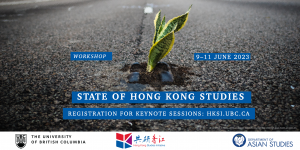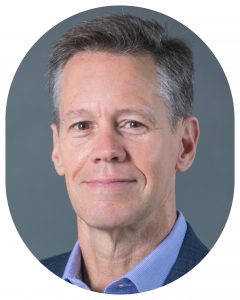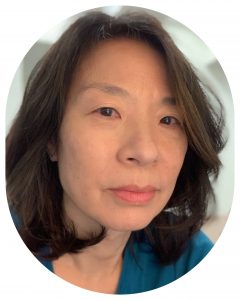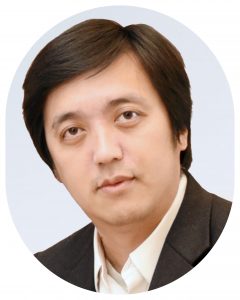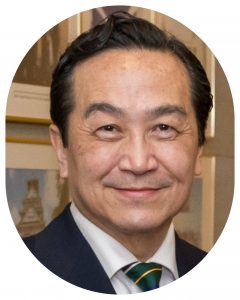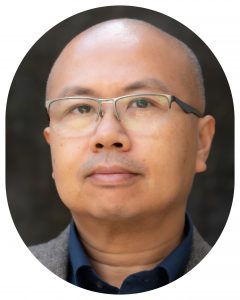State of Hong Kong Studies:
A Workshop
9–11 June 2023
The University of British Columbia
Vancouver Campus | Musqueam Traditional Territory
Organizers:
Leo K. Shin | Helena Wu
In a more ideal world, there perhaps need not be a field of “Hong Kong studies.” That world may still have troubles aplenty, but the scale for social scientific or humanistic inquiries would be hemispheric, global, or even planetary. But we do not live even remotely close to that world, and the injustices we need to wrestle with are certainly not limited to those that could be neatly grouped under the category of North–South divide, disinformation, or human-induced climate change. So we do have good reasons to go back to the basics and try to understand from the ground up where we have come from and where we might be heading.
So, yes, this is a slightly long-winded way of making the case that it remains important and useful that we take as our unit of analysis a geographic-cum-cultural space—not as an isolated, self-evident object of study but as a phenomenon to be made sense of both on its own terms and in broader translocal, transnational, as well as global contexts. To do so is to take seriously the diversity of human experiences as well as to deepen our understanding of the transformations and connectedness of the modern world.
It is the premise of the organizers that this is the right moment (there’s never a perfect time, of course) to take stock of the state of the field of “Hong Kong studies.” We look forward to bringing together an international—and multidisciplinary—team of emerging and established scholars, and we are grateful to have the opportunity to help build capacity for future research.
Program
We are pleased to be live-streaming special sessions 1A–1E. To register, please expand and scroll down to the bottom of “Prevailing Domains.” Students and faculty members interested in attending our workshop in person may do so by sending a request, by Monday, June 5, to hkworkshop.ubc@gmail.com (please indicate your affiliation and await our confirmation). We regret that, due to room capacity, we may not be able to accommodate all.
1A. The History and Politics of Hong Kong History
Friday, 9 June 2023, 09:15–10:15 PDT
In this presentation, I will examine some of the main trends and developments in Hong Kong history over the past three decades or so. I will show how the emphasis on Hong Kong as an encounter between East and West—a theme that persisted from the earliest accounts all the way through the 1990s—has evolved into one on Hong Kong as a place with fluid geopolitical, economic, and cultural borders. I will then look at recent official attempts to create a “fact-based” narrative of Hong Kong history that disregards competing narratives, omits or glosses over key aspects of the colonial period, and focuses on the nation rather than the special administrative region. The combination of the 2019 protests, the Coronavirus pandemic, and the enactment of the National Security Law in June 2020 created a perfect storm for clamping down on important aspects of Hong Kong history. Yet I will show how this also provided a favourable environment for promoting Hong Kong history in ways that challenge or at least question this new official narrative.
John M. CARROLL is Principal Lecturer in the Department of History at the University of Hong Kong, where he teaches courses on the history of Hong Kong, the British Empire, museums, and tourism. He is the director of HKU’s new MA programme in Hong Kong History and the chair of the Society for Hong Kong Studies. Carroll has published three books on the history of Hong Kong, most recently The Hong Kong-China Nexus, and is currently writing on the history of Hong Kong tourism.
1B. Political Development in Hong Kong: From Colonial State-Building to Postcolonial Regime Breakdown
Friday, 9 June 2023, 13:45–14:45 PDT
In this presentation, I will analyze the political development in Hong Kong from the 1970s to 2020s, focusing on the complex causal logics linking the state-building effort of the colonial state in the 1970s to the eventual termination of the “One Country, Two Systems” experiment by Beijing.
Ray Yep and Tai-Lok Lui’s (2010) original study offers cogent evidence that the purpose of the colonial state-building initiative in the 1970s was to “build a model city” so as to maintain internal stability and strengthen Britain’s future bargaining power with China over the 1997 issue. The outcome was a quantum leap in the infrastructural power of the state, social development, and political liberalization. The profound societal changes were monumental for shaping the civic identity of Hong Kong people and the civil society in the postcolonial era. The immediate consequence of prolonged political stability, however, led to the undermobilization of the democratic movement during the crucial moment of Sino-British negotiation. When the Basic Law was being drafted, the objective conditions were highly favorable for the business elites to form a leading political coalition through reaching out to conservative sectors of the middle class. Instead, the business elites accepted Beijing’s cooptation, forgoing the alternative route of protecting their interests through negotiating for full democracy and securing their position of strength in elections.
The political alignment of post-colonial Hong Kong was the outcome of a political engineering project launched by the party-state to choreograph elite coalition formation while containing the power of the opposition parties. The outcome is a negative dynamic of disequilibrium, in which the social power basis of the ruling elites became increasingly exclusive, while the opposition parties were increasingly divided by internal frame disputes. The Anti-ELAB movement signified regime breakdown, as social insurgency was accompanied by elite rupture, electoral breakthrough, and the temporary coalescence of political opposition, prompting the party-state to terminate the OCTS experiment.
Eliza W.Y. LEE is an honorary professor at the Department of Politics and Public Administration, The University of Hong Kong, where she was a professor from 2012 to 2022. Her current research interests focus on civil society, state-society relations, and political regime characteristics in Hong Kong. She has published extensively on various topics related to Hong Kong politics and public administration. Her articles have appeared in Journal of Contemporary China, Governance, Policy and Politics, International Public Management Journal, Journal of Social Policy, Public Administration Review, Journal of Civil Society, Voluntas, and Asian Survey. She is the lead author of Public Policymaking in Hong Kong: Civic Engagement and State-Society Relations in a Semi-Democracy (London: Routledge, 2013) and the editor of Gender and Change in Hong Kong: Globalization, Postcolonialism, and Chinese Patriarchy (Vancouver: UBC Press, 2003). She currently serves on the editorial board of Voluntas and International Review of Administrative Sciences, and has previously served on the editorial board of Public Administration Review. She is currently a member of the Humanities and Social Sciences Panel, Research Grants Council of Hong Kong, China. She was head of the department from 2013 to 2016, and the director of Centre for Civil Society and Governance of her university from 2010 to 2018.
1C. Hong Kong Society under Autocratization
Saturday, 10 June 2023, 10:00–11:00 PDT
In the past decade, Hong Kong has gone through a period of spectacular social mobilization, followed by rapid de-mobilization due to state suppression. I will address two sets of issues that would tie the phenomenon to broader issues in the study of Hong Kong society. First, I will examine the socio-economic and socio-cultural bases of political discontent in the 2010s. Through reviewing existing research about economic inequality in Hong Kong society and value change of Hong Kong people, I argue that economic grievances and political values were articulated into a holistic critique of social and political injustice that fueled contentious politics. Second, I will examine Hong Kong society’s response to the abrupt and radical tightening of social and political control since 2020. Through a discussion of the most recent publications as well as ongoing research about Hong Kong society on issues ranging from societal self-censorship to migration, I highlight adaptation and resilience as the emerging themes in the political sociology of Hong Kong. I will end with a discussion of how societal grievances and values may evolve given the ongoing process of adaptation.
Francis L. F. LEE is Professor at the School of Journalism and Communication, Chinese University of Hong Kong. He is the lead author of Media, Social Mobilization and Mass Protests in Post-colonial Hong Kong (Routledge, 2011), Media and Protest Logics in the Digital Era (Oxford University Press, 2018), and Memories of Tiananmen: Politics and Processes of Collective Remembering in Hong Kong, 1989–2019 (Amsterdam University Press, 2021). He is the founding Co-Chair of the Society for Hong Kong Studies. He is also currently Chief Editor of the Chinese Journal of Communication and an Elected Fellow of the International Communication Association.
1D. Hong Kong (Cultural) Studies: Institutionalization and Its Discontents
Saturday, 10 June 2023, 14:00–15:00 PDT
In this presentation, I will offer a very brief but critical introduction to the development of Hong Kong studies from a cultural perspective. Despite its international fame, Hong Kong has long been considered a “cultural desert,” and the study of its culture was therefore marginalized in the academy until the 1997 issue brought it to the attention of academic research during the late-transitional period. Notwithstanding this, there were different kinds of researches at the periphery of the academy, which are scattered in different units without a strong theoretical thrust as a field. In light of these efforts, the institutionalization of Hong Kong cultural studies since the 1990s—including but not limited to academic programs, conferences, journals, and book series—and its discontents are discussed. It is against this backdrop that this chapter explores Hong Kong cultural studies in relation to its possible development as a field. Meanwhile, when the “one country, two systems” framework prescribes that the Special Administrative Region would continue to play a special role between China and the world after reversion to its motherland, Hong Kong has witnessed paradigm shifts in recent years, through which issues related to the city and its culture have to be reconsidered. Given emerging formations of global modernity with Chinese characteristics, Hong Kong and its culture has to be (re-)imagined in a new “one world, two systems” world order. I will also endeavor to offer preliminary thoughts on how to theorize Hong Kong cultural studies in this special context.
Stephen Yiu-Wai CHU is Professor and Director of Hong Kong Studies Programme, The University of Hong Kong. His research focuses on postcolonialism, globalization and Hong Kong culture. He has published more than 30 books, including Hong Kong Popular Culture in the 1980s: A Decade of Splendor (Amsterdam: Amsterdam University Press, forthcoming), Main Melody Films in the 2010s: Hong Kong Directors in Mainland China (Edinburgh: Edinburgh University Press, 2022), Found in Transition: Hong Kong Studies in the Age of China (Albany: SUNY Press, 2018), Hong Kong Cantopop: A Concise History (Hong Kong: Hong Kong University Press, 2017), Hong Kong Culture and Society in the New Millennium: Hong Kong as Method (ed.) (Singapore: Springer, 2017) and Lost in Transition: Hong Kong Culture in the Age of China (Albany: State University of New York Press, 2013). In recognition of his contribution to the promotion of Hong Kong culture and Cantopop, South China Morning Post presented him the Spirit of Hong Kong Award (Culture) in 2019.
1E. The Political Economy of Hong Kong Development
Sunday, 11 June 2023, 09:00–10:00 PDT
In this presentation, I will outline the transformation of Hong Kong’s economy from a colonial entrepôt to an export-oriented manufacturing hub and then a global financial center. I will focus on the literature that discusses Hong Kong’s changing economic role in the context of the transformation of the global capitalist economy and China’s link to it from the nineteenth to the twenty-first century, focusing on the post-sovereignty-handover period. I will also cover the changing inter-sectoral and inter-corporate balance of power, employment structure, pattern of income distribution, and the myth vs. reality of laissez faire economic policy amidst successive economic restructurings. I will end with a discussion about plausible future trajectories of the Hong Kong economy under intensifying US–China rivalry and decoupling.
Ho-fung HUNG is the Henry M. and Elizabeth P. Wiesenfeld Professor in Political Economy in the Department of Sociology and the Nitze School of Advanced International Studies at the Johns Hopkins University. He is the author of Protest with Chinese Characteristics (Columbia University Press, 2011), The China Boom: Why China Will not Rule the World (Columbia University Press, 2015), City on the Edge: Hong Kong under Chinese Rule (Cambridge University Press, 2022), and Clash of Empires: From “Chimerica” to the “New Cold War” (Cambridge University Press, 2022). His academic publications have been translated into at least 10 different languages. His analysis of Chinese and Hong Kong politics and economy have been cited and featured in major media outlets around the world, including The New York Times, The Washington Post, The Wall Street Journal, Bloomberg News, CNN, Financial times, BBC, The Guardian, South China Morning Post, among others.
Registration: "State of Hong Kong Studies—Prevailing Domains"
Registration for these sessions is now closed.
2A. Friday, 9 June 2023, 10:30–12:10 PDT
Moderator: Quinton HUANG
Mapping Hong Kong Studies: A Bibliometric Analysis
Samson YUEN, Hong Kong Baptist University
Edmund W CHENG, City University of Hong Kong
State-Society Relations in Colonial Hong Kong
Florence MOK, Nanyang Technological University, Singapore
Do You Hear the People Sing? The Many, the One, and the Entangled
Kai Yui Samuel CHAN, University of California, Berkeley
From Disappearance to the End Game: Reflecting on the Politics of Decolonization in Hong Kong
Chun Chun TING, Nanyang Technological University, Singapore
2B. Friday, 9 June 2023, 15:00–16:20 PDT
Moderator: Tommy TONG
Queering Hong Kong Studies Paradigms: Theoretical Interventions in Times of Change
Ting-Fai YU, French Centre for Research on Contemporary China
New Frameworks for Religious Studies from Hong Kong
Ting GUO, Chinese University of Hong Kong
The Intersection between Anthropocene and the Environment: The Meaning of Deep Time in Hong Kong Identity and History
Winnie L. M. YEE, University of Hong Kong
3A. Friday, 9 June 2023, 16:30–18:10 PDT
Moderator: Cheuk Him Ryan SUN
Taste and Texture: Foodways in Everyday Practice
Sidney C. H. CHEUNG, The Chinese University of Hong Kong
The Sonic in Post-Handover Hong Kong
Winnie W C LAI, University of Pennsylvania
Choreographing “One Country, Two Systems”: A Hong Kong Dance Studies Perspective
Ellen GERDES, Swarthmore College
Games of Becoming: Ludic Nostalgia and Virtual Futures of Hong Kong
Hugh DAVIES, RMIT Australia
3B. Saturday, 10 June 2023, 08:30–09:50 PDT
Moderator: Kennedy Chi-pan WONG
Digital Language Archives for Hong Kong Studies in the Big Data Era
Andy CHIN, The Education University of Hong Kong
Hong Kong Studies Archives in Hong Kong and the Diaspora: How to Sustain and Build
Daniel C. TSANG, University of California, Irvine
Documenting in the Age of Silence: Hong Kong, Gwangju, and Jeju Compared
Jung-a CHANG, Incheon National University, Korea
4A. Saturday, 10 June 2023, 11:00–12:40 PDT
Moderator: Kai Yui Samuel CHAN
The Figure(s) of the Refugee in Hong Kong History
Cheuk Him Ryan SUN, University of British Columbia
Leftist Culture in Colonial Hong Kong
Mian CHEN, Northwestern University
Hongkongers Beyond Hong Kong: The Multi-constituents of the Diasporic Hongkonger Identity
Kennedy Chi-pan WONG, University of Southern California
Nathan L.T. TSANG, University of Southern California
Of Cats and People: Poetics of Fluffiness in Hong Kong’s Urban Narratives
Fiona Y. W. LAW, University of Hong Kong
4B. Saturday, 10 June 2023, 15:00–16:40 PDT
Moderator: Nathan L.T. TSANG
School History and the Study of Early Female Bilingual Education in Hong Kong
Carole Hang-fung HOYAN, The Chinese University of Hong Kong
Articulating (Racial) Minority as “Method” in Hong Kong
Lisa Y.M. LEUNG, Lingnan University, Hong Kong
We Are All Drifting: Mapping Transgender Political Activism in Hong Kong
Siufung LAW, Emory University
Hong Kong Christianity and Social Activism
Ann Gillian CHU, Hong Kong Baptist University
5A. Saturday, 10 June 2023, 16:50–18:10 PDT
Moderator: Brandon FUNG
Rethinking Hong Kong Histories and Urbanism through Infrastructure
Cecilia L. CHU, The University of Hong Kong
Dorothy TANG, National University of Singapore
When Digital Capitalism Meets Techno-Nationalism: A Case Study of Hong Kong Smart Urbanism
Hiu Fung CHUNG, University of Toronto
Hong Kong Popular Culture: Circuit of Circulation and Commodification
Anthony FUNG, The Chinese University of Hong Kong
5B. Sunday, 11 June 2023, 10:00–11:20 PDT
Moderator: Bernice CHAU
Beyond the Cold War Framework: China and Hong Kong in the Global Monetary Order
Ho-chiu LEUNG, University of California, San Diego
Hong Kong as a Space of Flow and the Post-2019 Migrations: A Multiscalar Perspective
Yuk Wah CHAN, City University of Hong Kong
Spectator(ship)s and Hong Kong Film and Television Audiences
Helena WU, University of British Columbia
Acknowledgment
The "State of Hong Kong Studies" workshop is hosted by the UBC Hong Kong Studies Initiative with the generous support of: Social Sciences and Humanities Research Council of Canada, Watt Family-Hong Kong Studies Initiative Fund, Department of Asian Studies, Department of History, Centre for Chinese Research, St. John's College, and The School of Public Policy and Global Affairs.
Deadline for abstracts: 15 November 2022
In a more ideal world, perhaps, there need not be a field of “Hong Kong studies.” That world may still have problems aplenty, but the “proper” scale for humanistic or social scientific inquiries would be hemispheric, global, or even planetary. But we do not live even remotely close to that world, and the injustices we need to wrestle with are certainly not limited to those that could be easily placed under the category of North-South divide, disinformation, or human-induced climate change. So we do have good reasons to go back to the basics and to try to understand from the ground up where we have come from and where we might be heading.
So, yes, this is a slightly long-winded way of making the case that it remains important and useful that we take as our unit of analysis a geographic-cum-cultural space—not as an isolated, self-evident object of study but as a phenomenon to be made sense of both on its own terms and in broader translocal, transnational, as well as global contexts. To do so is to take seriously the diversity of human experiences and to deepen our understanding of the transformations as well as connectedness of the modern world.
It is the premise of the organizers of this workshop that this is the right time (there is never a perfect time, of course) to take stock of the state of the field of “Hong Kong studies” and to stimulate further research. Our goal is to produce an edited volume that will serve as an essential reference for both specialists and non-specialists alike. The chapters we envision will be empirical in their substance and will each provide an overview of the state of a particular subfield (or sub-subfield) in Hong Kong studies. We look forward to contributions from both emerging and established scholars, and we welcome approaches and methodologies from a wide range of disciplines.
While the organizers are open to all worthy topics, we are particularly looking forward to contributions that would form part of one or more of the following clusters:
A. Shifting Paradigms
The papers in this cluster are expected to examine some of the key paradigmatic shifts in academic and/or public discourses concerning Hong Kong. They will, individually and collectively, survey the changes in value, technology, ideology, political structure, and/or institutional order that have shaped our approaches to the study of Hong Kong, and they will interrogate existing paradigms of disciplinary framing and knowledge. The goal here is to encourage critical reflections on the development of Hong Kong studies as a site of knowledge production and subject (trans)formation.
Potential topics for the individual papers for this cluster:
- coloniality/postcoloniality
- human/non-human
- materialism/postmaterialism
- politics of representation (e.g., “East-meets-West", subject/object)
- public/private
- status quo/change
- truth/post-truth
- visuality/(dis-)appearance
B. Variegated Praxes
The papers in this cluster are expected to showcase the diversity of methodologies associated with Hong Kong studies. It is of course impossible to include all possible topics, so we will prioritize contributions that would provide an overview of a particular methodological domain and would, at the same time, engage broader discussions concerning research methods, materials, ethics, etc.
Potential topics for the individual papers for this cluster:
- archives/corpora
- big data/digital humanities
- comparative studies
- discourse/textual analysis
- ethnography
- policy research
- quantitative/qualitative analysis
- visual analysis
C. Manifold Constituents
The papers in this cluster are expected to demonstrate how various (marginalized) constituents have been approached in the context of Hong Kong studies. The goals here are to cast light on the diversity within Hong Kong society as well as on how the case of Hong Kong could contribute to broader conversations about the formation, transformation, and negotiation of identities, among other topics.
Potential topics for the individual papers for this cluster:
- class
- ethnicity/ethnic minorities
- foreign workers/immigrants
- indigeneity
- gender
- LGBTQ+ communities
- subculture
- youth
D. Variable Scales
The papers in this cluster are expected to highlight the diverse approaches to Hong Kong studies from the perspective of “scales.” Here, “scales” should be understood broadly to include those concerning geography, space, time, relations, mobility, etc. We will prioritize contributions that would at once offer an overview of a particular domain of Hong Kong studies and engage broader discussions about scales and parameters.
Potential topics for the individual papers for this cluster:
- anthropocene/environment
- bodies/embodiments
- communities/networks
- Hong Kong studies and other academic fields/disciplines
- immigration/migration
- local/regional/global connections
- state-society relationship/nationalism
- translocality/transnationalism
Interested participants of the “State of Hong Kong Studies” workshop are invited to submit an abstract (~350 words), five keywords, and a one-paragraph biographical sketch (to be combined in 1 PDF file named in the format: “[family name]-[given name]-workshop-abstract”) to hkworkshop.ubc@gmail.com by 15 November 2022. Please use “State of Hong Kong Studies: Abstract” for the subject line in your email, and be sure to indicate in your abstract the cluster(s) (you may choose more than one) under which you would like your paper to be considered. Please note that we particularly appreciate contributions that would explicitly address the state of a particular subfield (understood broadly) in Hong Kong studies. Successful applicants will be notified by 15 December 2022, and full papers (~8,000 words, excluding notes and bibliography) are expected by 15 May 2023.
It is our expectation that the workshop will adopt a hybrid format. For participants who wish to join us in person, we will provide most of the meals and as much on-campus housing as budget allows.
For further information, please contact the workshop organizers at hkworkshop.ubc@gmail.com.
